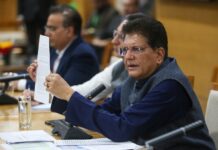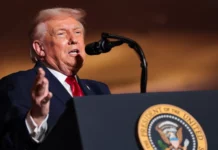 ISLAMABAD: Amidst growing speculation about a fresh anti-militancy campaign in the country’s lawless tribal belt, Pakistan’s powerful army chief Gen Ashfaq Parvez Kayani today warned of a civil war if the war on terrorism is not fought.
ISLAMABAD: Amidst growing speculation about a fresh anti-militancy campaign in the country’s lawless tribal belt, Pakistan’s powerful army chief Gen Ashfaq Parvez Kayani today warned of a civil war if the war on terrorism is not fought.
“The fight against extremism and terrorism is our own war and we are right in fighting it. Let there be no doubt about it, otherwise we’ll be divided and taken towards civil war.
Our minds should be clear on this,” Kayani said in his speech at an event held at the Pakistan Military Academy to mark the Independence Day.
Kayani’s remarks came against the backdrop of US Defense Secretary Leon Panetta’s comments that the Pakistan Army chief had informed American military officials that a new operation against the Taliban would be launched in the tribal belt in the “near future”.
The powerful army chief reiterated his force’s pledge to act against militancy and extremism but acknowledged that anti-militancy campaigns were not easy.
“We realize that the hardest task for any army is to fight against its own people. But this happens as a last resort. Our real objective is to ensure peace returns to these areas so that people can lead normal lives,” Kayani said.
“No state can afford a parallel system or a militant force,” he said during the Azadi Parade at the academy located a short distance from the compound in Abbottabad where US commandoes killed Osama bin Laden during a raid in May last year.
Kayani made it clear that the fight against terrorists and extremists had to be fought by the entire nation and not just by the army.
The army chief, who has been critical of the performance of civilian law enforcement agencies in the past, said the sacrifices in the war on terrorism would bear fruit only when the civil administration begins functioning independently without military aid in areas cleared of militants. He regretted the lack of effective counter-terrorism laws, an area in which Pakistan’s efforts were marked by tardiness.
Army officials have often contended that the lack of effective laws have often worked to the advantage of terrorists.
Kayani also hinted at the civilian government’s poor performance, saying the “critical economic situation, corruption and deterioration of civic amenities” were preventing people from looking ahead.
He listed the protection of national integrity and unity as the biggest challenge for the country.
The army chief acknowledged that all stakeholders were to blame for the mistakes of the past, “some more than others”, but said the time had come to “stand up as a nation” instead of indulging in a blame game.
Speculation about a major military operation to clear the North Waziristan Agency, described by the US as a safe haven for Taliban and al-Qaeda elements, have intensified following a recent improvement in ties between Islamabad and Washington.
Observers said Kayani appeared to be preparing the ground for a fresh anti-militancy drive but it was not yet clear if the Pakistan Army could go after the Haqqani network, blamed for cross-border attacks in Afghanistan.
The Dawn reported that according to the military’s own assessment, it controls 86 per cent of the tribal areas while nine per cent is contested and five per cent is held by militants, mostly those loyal to the Taliban.
The report said a Corps Commanders’ conference held last week took some important decisions about the future of counter-militancy operations in the tribal belt. -PTI






